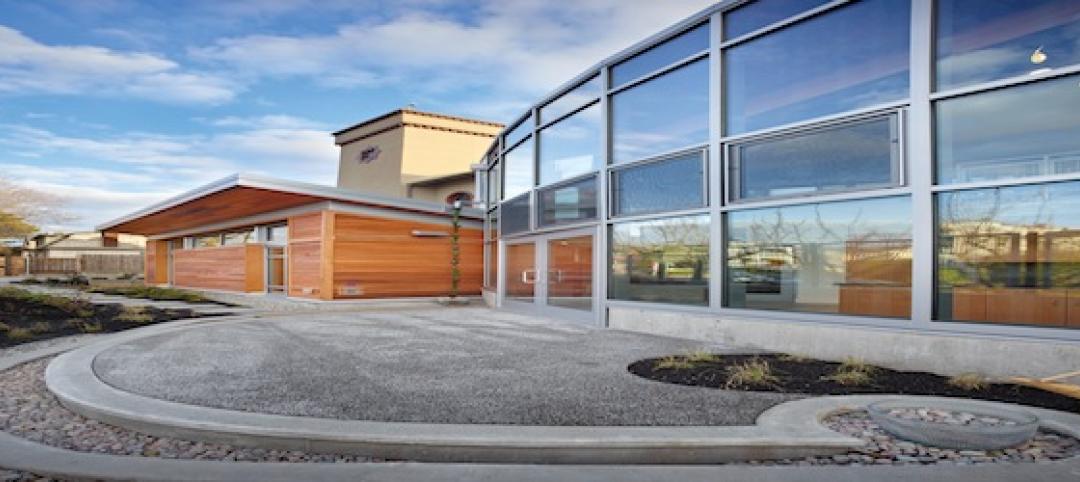The Eugene, Ore., City Council recently passed an ordinance aimed at steeply reducing energy consumption and greenhouse gas emissions. The city of 158,000wants to reduce community-wide greenhouse gas emissions 10% below 1990 levels by 2020, and reduce fossil fuel use by 50% by 2030.
Eugene is developing an energy inventory for its entire economy. After that is completed, it will consider voluntary energy-saving measures in the private sector, such as easier permitting for energy-efficient construction and energy performance scores for commercial buildings. The city will also consider other measures like commercial food-waste composting in restaurants and grocery stores to reduce methane emissions from landfills.
Eugene has made significant progress in reducing emissions recently from transportation without any concerted plan. Transportation emissions have dropped 2.5% per year since 2010, despite some population growth. This is largely due to economic and cultural shifts: the recession, the rise of telecommuting, online shopping and entertainment, transit, biking, more efficient cars, and higher gasoline prices. The city has encouraged these trends by improving bus service and developing a master plan for sidewalk and bike path improvements.
City government has rejected hard caps on emissions to date, focusing instead on voluntary measures and incentives for the private sector.
(http://grist.org/climate-energy/what-can-small-cities-do-to-fight-climate-change/)
Related Stories
| Sep 15, 2011
Bill Seeks To Spur Stronger Building Codes Nationwide
The Safe Building Code Incentive Act of 2011 would provide strong financial incentives for states to adopt and enforce strong building codes.
| Sep 15, 2011
New Federal Law Limits Amount of Formaldehyde in Wood
President Obama signed into law legislation that limits the amount of formaldehyde in wood. The new measure will impact particle board and other composite wood products .
| Sep 12, 2011
Living Buildings: Are AEC Firms up to the Challenge?
Modular Architecture > You’ve done a LEED Gold or two, maybe even a LEED Platinum. But are you and your firm ready to take on the Living Building Challenge? Think twice before you say yes.
| Sep 8, 2011
OSHA issues alert on incorrectly rebuilt circuit breakers
The Occupational Safety and Health Administration (OSHA) has issued a hazard alert, warning workers and employers of certain Eaton/Cutler-Hammer molded-case circuit breakers that were incorrectly rebuilt.
| Sep 8, 2011
USGBC Streamlines LEED EB: O&M
The Council has reorganized the prerequisite and credit structure of LEED EB: O&M.
| Sep 8, 2011
USGBC: 30 Legislative ‘Wins For Green Building’ So Far In 2011
A mid-year report by the U.S. Green Building Council says that there have been “30 legislative wins for green building” across 22 states in 2011.
| Sep 8, 2011
Revised Building Codes Adopted After WTC Attacks Being Implemented
U.S. National Institute of Standards and Technology (NIST) code revision recommendations in the wake of the World Trade Center terrorist attacks are being implemented in new high-rise construction including One World Trade Center, the lead building of the new World Trade Center complex.
| Sep 8, 2011
New Sustainability Standard Addresses Disaster Resistance
To aid local governments to adopt high-performance green building codes, the Portland Cement Association (PCA) and the Institute for Business and Home Safety (IBHS) have developed High Performance Building Requirements for Sustainability 2.0.
| Sep 8, 2011
Pilot ISO 50001 Implementations Report Big Energy Savings
The International Organization for Standardization (ISO) recently published ISO 50001 to provide a recognized framework for integrating energy performance into management practices.
| Sep 8, 2011
USGBC Revises Energy Demand Response Credit
Originally launched in 2010, the revised and enhanced Demand Response Pilot Credit establishes guidelines that are anticipated to increase participation in automated energy demand response programs.







